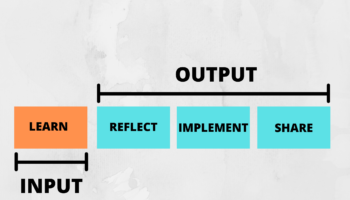What is the purpose of work?
In her book, Your Money or Your Life, Vicki Robin makes the argument that breaking the link between work and wages can lead to more fulfilment in your life. She makes a very compelling argument that I want to present in this article. I will start by posing a few questions she posed in her book.
What is work?
Vicki noted that the concept of work consists of a patchwork of contradictory beliefs, thoughts, and feelings as illustrated by the following definitions of work:
E. F. Schumacher, an influential twentieth-century economist, says:
The three purposes of human work are as follows:
- First, to provide necessary and useful goods and services.
- Second, to enable every one of us to use and thereby perfect our gifts like good stewards.
- Third, to do so in service to, and in cooperation with, others, so as to liberate ourselves from our inborn egocentricity.
The late economist Robert Theobald tells us:
Work is defined as something that people do not want to do and money as the reward that compensates for the unpleasantness of work.
Studs Terkel begins his book Working this way:
This book, being about work, is, by its very nature, about violence — to the spirit as well as to the body. It is about ulcers as well as accidents, about shouting matches as well as fistfights, about nervous breakdowns as well as kicking the dog around. It is, above all (or beneath all), about daily humiliations. To survive the day is triumph enough for the walking wounded among the great many of us…It is about a search, too, for daily meaning as well as daily bread, for recognition as well as cash, for astonishment rather than torpor; in short, for a sort of life rather than a Monday through Friday sort of dying.
So, what really is work?
Is it a blessing or a curse?
A trial or a triumph?
Vicky redefines work by looking at what is consistently true about work. And this takes us to our second question.
What is the purpose of work?
Vicky challenges you to start by first reflecting on the following questions:
- Why do you do what you do to earn money?
- What motivates you to get out of bed to go somewhere and make money?
- What is the purpose, in your experience, of your paid employment?
Now, consider the following list of various purposes of paid employment and see which one applies to you as you reflect on the questions above:
- Earning money: To provide for oneself and the family. To save for the future. To engage in philanthropy. And to achieve financial independence.
- A sense of security: To ensure that your place at the company is assured. To ensure that you’ll have benefits.
- Tradition: To carry on a family tradition of following a particular profession. To fulfill a duty to your family. Because everybody works.
- Service: To do your fair share. To make a contribution to others, society, and the world. To “be the change you wish to see in the world,” aligning skills with helping others.
- Learning: To acquire new skills, grow as a human, become more marketable. To be stimulated and challenged. To innovate and create.
- Power: To influence other people. To influence decisions and outcomes. To assure respect and admiration from those you want to impress. To achieve success and prominence in your field.
- Socializing: To enjoy connecting with your coworkers. To interact with other people and feel part of a larger community. To engage in companywide events and parties.
- Time structuring: To structure your time and give an orderly rhythm to your life.
Vicky writes that you would notice that work has two different functions: the material, financial function (i.e., getting paid), and the personal function (emotional, intellectual, psychological, and even spiritual). She concludes that in reality, there is only one purpose served by paid employment:
Getting paid.
That is the only link between work and money. The other purposes of paid employment are other types of rewards, which are certainly desirable but not directly related to getting paid. They are all equally available in unpaid activities. Vicky makes the point that:
“For middle-class workers and up, any stress, confusion, or disappointment we might feel concerning our paid employment is rarely because of the pay itself. We have already seen that beyond a certain level of comfort, more money does not bring more satisfaction. Perhaps the trouble with our paid employment, then, is that our needs for stimulation, recognition, growth, contribution, interaction, and meaning are not being met by our jobs.”
Vicky goes on to argue that breaking the link between work and money allows us to reclaim balance and sanity. She writes:
Our fulfillment as human beings lies not in our jobs but in the whole picture of our lives — in our inner sense of what life is about, our connectedness with others, and our yearning for meaning and purpose. By separating work and wages we actually open the door to integrating all parts of our lives, from earning money to loving our families, into one whole called “who we really are.” When we are whole, we don’t need to try to consume our way to happiness. Happiness is our birthright.
Vicky goes on to provide these 8 implications of breaking the link between work and wages:
1.Redefining work increases choices
When you break the link between wages and work, you open up more options for yourself. Vicki explains with an example.
Let’s say you are a natural-born teacher but you took a job as a computer programmer because you can make more money (which you are convinced you need). In the old way of thinking, every time someone asked you what you do, you would be forced to affirm, “I am a computer programmer.” What do you suppose the effect on you might be of this long-term incongruity between your inner sense of yourself and your outer presentation? You might be mildly unhappy and not know why. You might be ill. You might run up a credit card debt to reward yourself for doing something that doesn’t suit you.
By breaking the link between wages and work, when you’re asked what you do, you can affirm, “I am a teacher, but currently I’m writing computer programs to make money.” Being able to acknowledge who you really are allows you to re-evaluate how you’ve structured your “career.”
You might decide to reduce your programming hours so that you can volunteer as a teacher. You might decide to teach computer programming. You might bring in a third love, like kayaking, and teach that on weekends while you program computers for money.
Disconnecting work from wages allows the various parts of your compartmentalized life to break loose, slide around, and rearrange themselves in a pattern that serves you better.
2. Redefining work allows you to work from the inside out
Vicki makes the point that fitting our well-rounded selves into the square holes called job reinforces the impression that life consists of selecting options from a fixed list. Unless you’re an artist or an entrepreneur, most often your job consists of working with someone else’s agenda — for which service you get paid.
In large corporations, most workers don’t even have a clue as to who originated the plans they’re diligently getting to work. And such corporations buy not only our work but our personalities as well, with their unspoken cultural norms about who talks with whom, what to wear, where people at various levels “do” lunch, and hundreds of other daily choices.
It’s clear that if we think that what we do to make money is who we are, we will end up adopting whatever pattern will allow us to survive best at our job. But if who you are and what you do to make money are distinct, you can reclaim your lost self. As you come to know yourself, your values, your beliefs, your talents, and what you care about, you will be able to work from the inside out. You will be able to do your job without giving up your self.
3. Redefining work makes us life designers, not just wage earners
Vicki writes that in the modern era, we learn to spend most of our time selling one small slice of our talents (i.e. working at a particular job) to pay for everything we need. Lose your job and you’ve lost 100% of your income.
Disconnecting work from wages, however, opens the door to valuing the big piece of the pie called “the rest of your time.” You might learn handyman skills or build that deck yourself or host a website or launch a blog…When you stop working for money, you may be out of a job but you are not out of work.
This means play might end up being pay. You might learn skills in a job that you take into your life. You may learn lessons in your life that later you’ll be paid for. The skills acquired in one job may lead to another. On one job you may learn the ins and outs of a trade so you can leave that job and ply that trade for fun…or profit. Work becomes self-expression. You are your boss, whether you’re paid or not, and you can carve out your own path.
4. Redefining work adds life to your retirement
As Vicki writes, retirement doesn’t mean you stop working. It means you can stop working for money. We all want to be useful, to be recognized by others for the contribution we make. If we think paid employment is our only admirable, respectable, and consequential way to contribute, then who’d want to retire? Nobody wants to be a has-been, washed up, put out to pasture. Disconnecting work from wages means that you are valuable in every role, task, activity — and it might free you to retire a lot earlier so you can give a lot more of yourself to others.
5. Redefining work honors unpaid activity
If you’ve ever tracked your time for an entire day or week or month, you will realize you have a lot of hours of unpaid activities. Important activities like cleaning, cooking, shopping, and chatting with family members.
Isn’t it true that these unpaid activities are often seen as worthless — as in worth less than paid activity? Isn’t it true that there is an almost universal belief in our culture that if you are not working for money, not building a career, not employed, you are a nobody?
Our inner work — the job of self-examination, self-development, and emotional and spiritual maturation — is just as crucial as paid work or housework or yard work. It takes time to know yourself — time for reflection, for prayer and ritual, for developing a coherent philosophy of life and personal code of ethics, and for setting personal goals and evaluating progress.
Disconnecting work and wages does away with that painful erasure of self from our identification with our jobs.
6. Redefining work reunites work and play
A friend once told me that you should design your life such that when people see you, they can’t tell if you’re playing or working. Vicki captures the same idea here as she writes…
Work is serious. Play is frivolous. Work is adult. Play is childish. Work is useful. Play is useless. Sometimes play may look like work, as in an intense chess game. Sometimes work can look like and even be called play, as in professional sports. And sometimes work feels so much like play that people say (somewhat guiltily), “This job is such fun I shouldn’t be paid for it.” So how do we tell the difference between work and play?
Both play and work can be competitive as well as cooperative. They can both build skills and give a sense of achievement. With both you can enter a state of intense focus, concentration, and flow. In fact, from the outside, watching a person fully engaged in an activity, one would not know if he or she was being paid or just playing. This is the power of disconnecting work and wages — you reconnect work and play so your whole life can glow with enjoyment.
7. Redefining work allows you to enjoy your leisure more
Vicki notes that the Greeks have always considered leisure as the highest good, the essence of freedom — a time for self-development and for higher pursuits. However, in our world today, we are unable to really relax and enjoy our leisure. Even our language betrays us by calling it “time off”, as though leisure were just a few minutes of recuperation before we’re back “on”, a once-again productive human being. If we did not identify so strongly with what we do for money, we might honor and enjoy our leisure more. It’s OK to play. It’s OK to relax in the shade and listen to the birds. It’s OK to take a walk to nowhere in particular. It’s OK to leave your technology at home and go camping. There is no shame in taking time to do activities alone either. It’s OK to take pleasure in just being rather than always doing. Leisure is not an identity crisis if you know you are not your job.
Perhaps because our jobs are so laced into every hour of our days, we take our leisure in unconscious and unsatisfying ways, like those micro-vacations consisting of secretly checking our phones while at work for texts from friends, social media, and maybe a recent skit from a late-night-TV comic. Separating work from wages reminds us to work with focus while at work and focus fully on our chosen activities when our time is our own.
8. Redefining work sheds a new light on “Right Livelihood”
“Right livelihood” is the ideal of finding a way for your true work or vocation to be your paid work as well. As admirable as this is, Vicki notes that there is no guarantee you will find someone to pay you to do what you feel called to do. It may take many years to develop your art or your research or your social innovation or your technology to the point where those who have money will fund you.
By giving up the expectation that you will be paid to do the work you are passionate about, you can do both things with more integrity. You can make money to cover your expenses, and you can follow your heart without compromise. You can treat your paid-employment years like preparation for your full-time vocation, with each job teaching and honing important personal and work skills as well as building networks.
To whatever degree you’ve settled for work you don’t love, if you have failed at being paid to do what you love, you can know that you have not really settled, you are just setting yourself up for your next move and ultimately your Financial Independence.
Conclusion
In my opinion, Vicki makes a persuasive argument here redefining work and putting together a strong case for breaking the link between work and wages.
Most of us work at jobs we hate and never have the opportunity to spend a significant amount of time doing the work that actually lights us up, the work we love.
Even more devastating is the fact that we place so much value in paid work that it steals the fulfillment we would have otherwise enjoyed if we had clearly broken the link between wages and work in our minds and lifestyle.
Our goal therefore, is to immediately break that link between wages and work so we can start living a fulfilled life.
P.S. Do you know I have a new book that can help you accelerate your wealth in a tax-efficient way? Check out my new book, Tax-Efficient Wealth, to learn how you can build






